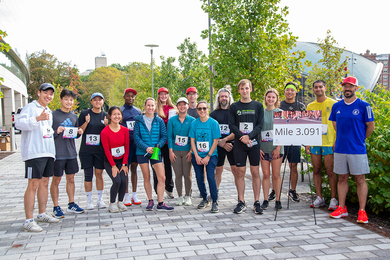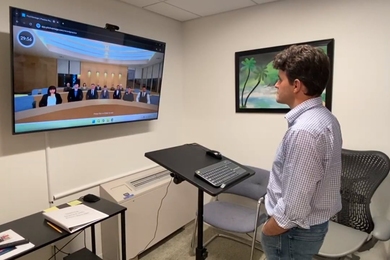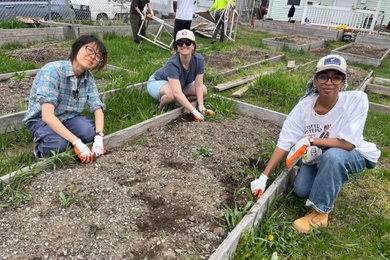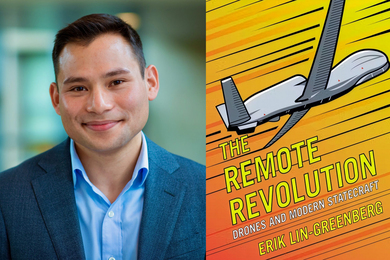MIT announced the establishment of a new chair, the Ralph Landau Professor of Chemical Engineering Practice and Director of the Practice School, at the meeting of the MIT Corporation last Friday (December 1).
Dr. Paul E. Gray, chairman of the Corporation, noted that Dr. Landau has long been committed to ensuring that the educational mission of the Practice School would flourish at MIT.
"Dr. Landau's generous gift of this professorship will be held by the faculty member who is serving as the director of the David H. Koch School of Chemical Engineering Practice, starting some time next year," said Robert Brown, Warren K. Lewis Professor and head of the Department of Chemical Engineering. "The Landau Professorship brings much added distinction to this position, as well as supplying financial support for the academic year salary and scholarly activities of the director."
"MIT's Chemical Engineering department is unique in the United States for having the Practice School through which a large majority (80 percent) of the masters degree students pass," Dr. Landau said.
He believes this type of masters education, in which students spend a term working in the field is the type of education which will most benefit today's students.
MIT's School of Chemical Engineering Practice was established in 1916 to assist students in making the transition from their life in academia to one in industry. It is the oldest professional master's degree program in engineering in the country, Professor Brown said. In the one-year program, students spend one semester off-campus at two different industrial sites, working on actual problems and projects that the company has identified. The program currently has 32 students (eight women and 24 men).
In contrast to the cooperative programs that several universities now offer, MIT's program has full-time faculty on-site at the industrial Practice School Stations. Additional faculty from Cambridge periodically visit the stations to provide technical advice and monitor the student's work.
Warren "Doc" Lewis, one of the program's founders, spoke words that still ring true today for practical engineering education. "Three things are essential for the technical person in industry. First, a recognition of the relevance of theory which he has learned in classroom and laboratory to the solution of practical problems, and he must master the methods of using theory in handling such problems. Second, he must appreciate the complexity of the economic factors that play such a predominant part in the problems of industry. Finally, he must understand the character, complexity and importance of human relationships involved in industry and know how to handle them."
MIT's program addresses all of those elements. Students present about 16 oral and four written reports during the semester they spend in the field, honing their communication skills.
Dr. Landau received the doctorate from the Practice School in 1941. He then worked for the M.W. Kellog Co. and was a principal in founding Scientific Design Co. When it became part of Halcon International, Landau was named president and subsequently chairman and CEO. He currently is associated with Listowel, Inc., a charter airplane firm in New York City and a consulting professor of economics at Stanford.
A version of this article appeared in MIT Tech Talk on December 6, 1995.





